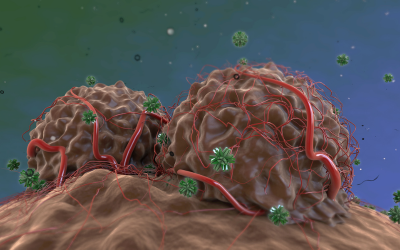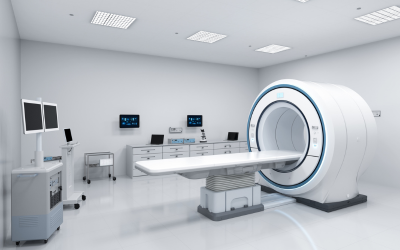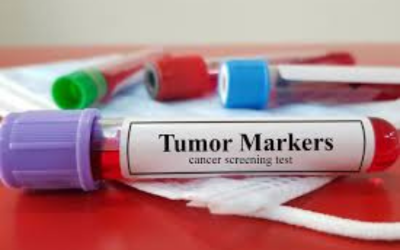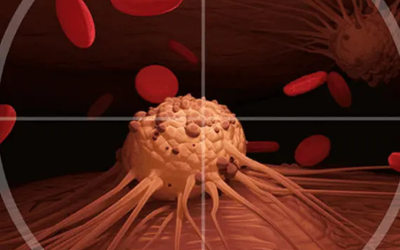
Gastrointestinal Cancer Treatment in Delhi
A Gastrointestinal cancer specialist in Delhi plays a crucial role in diagnosing and treating cancers that affect the digestive system—from the esophagus and stomach to the colon and rectum. These cancers account for one of the largest groups of cancer diagnoses globally. In India alone, cases of colorectal and stomach cancers are steadily rising, especially among urban populations, due to lifestyle shifts and dietary changes. Timely diagnosis and specialized gastrointestinal cancer treatment are key to improving outcomes.
“Early detection and minimally invasive surgery have revolutionized how we manage GI cancers today,” says Dr. Prateek Varshney, an eminent Surgical Oncologist . “Patients can now recover fast, have fewer complications, and have good results.”
Dr. Prateek Varshney has over 22 years of specialized expertise in surgical oncology, with a sharp focus on gastrointestinal cancer treatment in Delhi. Currently serving as the A Director & Unit Head at Max Superspeciality Hospital, Patparganj., he specializes in advanced surgical techniques—including laparoscopic and robotic procedures.
Types of Gastrointestinal Cancers
Esophageal Cancer :
Occurs in the tube linking your throat to your stomach. Symptoms can include trouble swallowing and unintentional weight loss.

Stomach (Gastric) Cancer :
Forms in the stomach lining and tends to have bloating, indigestion, and nausea.
Colorectal Cancer :
Encompasses cancers of the colon and rectum. It’s one of the most prevalent GI cancers and tends to begin as benign polyps.

Liver Cancer :
Can be caused by chronic hepatitis or cirrhosis. Usually asymptomatic in initial stages but curable if diagnosed early.

Pancreatic Cancer :
Aggressive in nature, tends to impair digestion and blood glucose levels..
Gallbladder & Bile Duct Cancer :
Rare but serious, usually detected when undergoing imaging for other reasons.

Gastrointestinal Stromal Tumors (GISTs) :
Rare tumors that begin in the walls of the GI tract and may require targeted therapies.
Diagnostic Services Offered by Dr. Prateek Varshney

Endoscopy & Colonoscopy :
These tests involve a thin, flexible tube with a camera to see inside the digestive tract and identify abnormalities before they become serious. Direct visualization of inner structures enables the identification of tumors at early stages.

Imaging (CT/MRI/PET) :
Advanced imaging techniques create detailed pictures that help determine the exact location, size, and stage of the tumor. High-resolution scans help in accurate staging and surgical planning.

Biopsy & Histopathology :
Tissue is seen under a microscope to ensure cancer and learn about its nature and aggressiveness. Tissue examination establishes diagnosis and directs treatment.

Tumor Markers :
Individual proteins in the blood can indicate the presence of specific cancers and monitor treatment response. Blood tests to identify certain proteins associated with specific cancers.

Genetic Testing :
This assists in the detection of inherited gene mutations associated with GI cancers and individualizing treatment accordingly. Assists in the identification of hereditary cancer risk and individualizing targeted therapies.
Gastrointestinal Cancer Treatment in Delhi Offered by Dr. Prateek Varshney

1. Surgery

Surgery is usually the main GI cancer treatment to eliminate cancerous tumors from the digestive system. It is done to remove the tumor along with some adjacent healthy tissue to avoid spread. Surgery can be curative for cancers at an early stage or to alleviate symptoms in advanced cancers. Surgical procedures can include:
- Minimally Invasive Surgery
- Open Surgery
- Endoscopic Resection
- Total Resection
- Lymph Node Removal
- Partial Resection
- Palliative Surgery


2. Chemotherapy
This method involves the use of medications to destroy or prevent the multiplication of cancer cells. It may be given before surgery (neoadjuvant) to reduce tumors, after surgery (adjuvant) to remove any remaining cells, or for late-stage cancers to manage spread.


3. Radiation Therapy
Radiation employs high-energy beams to kill cancer cells. It is used together with chemotherapy in order to enhance results, particularly in rectal or esophageal cancer, or to ease symptoms.


4. Targeted Therapy
These drugs target specific molecules involved in cancer growth and spread, resulting in fewer side effects compared to traditional chemotherapy. They are used based on the genetic profile of the tumor.


5. Immunotherapy
Immunotherapy enhances the immune system of the body to identify and destroy cancer cells. This is a newer treatment, which is especially helpful in some cases with certain biomarkers.
Why Choose Dr. Prateek Varshney for Gastrointestinal Cancer Treatment in Delhi?

Extensive Experience in Oncology:
With over two decades of experience in cancer care, Dr. Varshney brings seasoned judgment and surgical precision to every case.
Minimally Invasive Surgical Mastery:
Expert in robotic and laparoscopic surgeries, enabling faster recovery, fewer complications, and enhanced surgical accuracy.
Patients consistently choose his care for its unmatched precision, personalized approach, and advanced surgical options.

Keeps patients and families fully informed at every step, fostering trust and understanding.
Combines the latest research with individual patient needs to ensure optimal outcomes.
Numerous positive testimonials and consistently strong surgical success rates back his reputation.
Frequently Asked Questions
1. What are the risk factors for GI cancers?
2. Are GI cancers preventable?
3. What is the prognosis for GI cancer patients?
4. How often should I get screened for colon or stomach cancer?
5. What is a gastrointestinal stromal tumor (GIST)?
6. Are all GI cancers treated with surgery?
Disclaimer: The content shared on this page is for informational purposes and not for promotional use.



